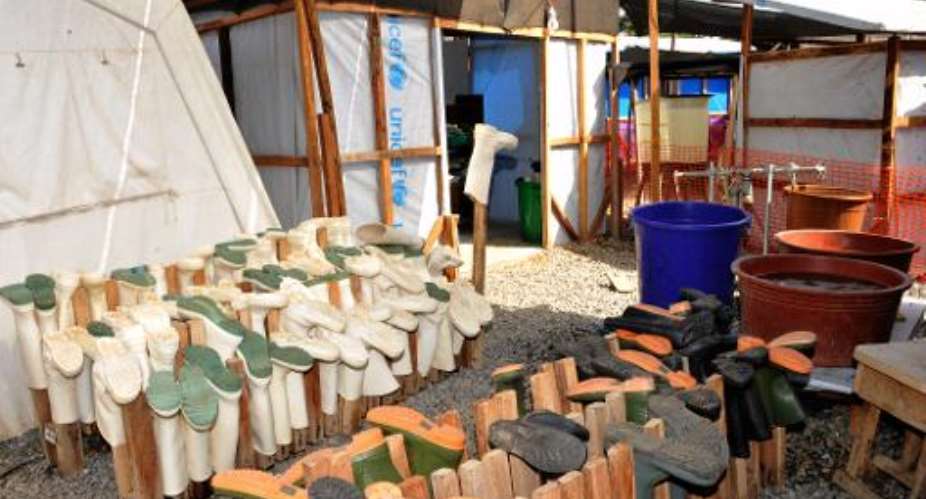Bissau (AFP) - Guinea-Bissau said on Thursday it had strengthened health screening at its borders after a rash of Ebola cases in neighbouring Guinea.
The announcement came after the Red Cross said it had sent epidemiologists to prepare for a possible outbreak in the west African country's border area with Guinea.
"We have no cases of Ebola. Nevertheless we remain vigilant at our border with Guinea," said Nicolau d'Almeida, director general of prevention and health the Ministry of Health.
"At border posts hand-washing and, in some cases, temperature control is still required in suspect cases."
Youcef Ait Chellouche, deputy head of International Federation of Red Cross and Red Crescent Societies' regional Ebola operation, described the risk of an outbreak in Guinea-Bissau as "real", adding that the charity was preparing "should the worst happen".
At least one sick person is believed to have recently crossed the border several times from Guinea to Guinea-Bissau, the IFRC said in a statement, adding that efforts to trace them have been unsuccessful.
The World Health Organization (WHO) said on Wednesday it had sent a team to the border to trace someone who attended the funeral of an Ebola victim in the northwestern Guinean prefecture of Boke before returning to a fishing community in Guinea-Bissau.
After more than 200 days of no cases in Boke, five cases were recently reported, although the WHO said in its latest Ebola situation report just one case was registered in the seven days up to Sunday.
People cross the porous border between the two countries daily to tend fields or go to work.
The west African Ebola outbreak, which arose in Guinea in December 2013, has killed more than 11,000 of some 27,000 people infected identified cases, according to official data.
Experts in Guinea, Sierra Leone and Liberia acknowledge however that the real death toll, including cases not reported to authorities, is likely to be significantly higher.





 April 20: Cedi sells at GHS13.63 to $1, GHS13.06 on BoG interbank
April 20: Cedi sells at GHS13.63 to $1, GHS13.06 on BoG interbank
 Dumsor: I'm very disappointed in you for messing up the energy sector — Kofi Asa...
Dumsor: I'm very disappointed in you for messing up the energy sector — Kofi Asa...
 Dumsor: Instruct ECG MD to issue timetable and fire him for lying — Kofi Asare t...
Dumsor: Instruct ECG MD to issue timetable and fire him for lying — Kofi Asare t...
 Ashanti region: Road Minister cuts sod for 24km Pakyi No.2 to Antoakrom road con...
Ashanti region: Road Minister cuts sod for 24km Pakyi No.2 to Antoakrom road con...
 Train crash: ‘How could any normal person leave a car on rail tracks?’ — Frankli...
Train crash: ‘How could any normal person leave a car on rail tracks?’ — Frankli...
 Train crash: Driver of abandoned vehicle not our branch chairman nor secretary —...
Train crash: Driver of abandoned vehicle not our branch chairman nor secretary —...
 Kenya pays military homage to army chief killed in copter crash
Kenya pays military homage to army chief killed in copter crash
 US agrees to pull troops from key drone host Niger: officials
US agrees to pull troops from key drone host Niger: officials
 Mahama vows to scrap teacher licensure exams, review Free SHS policy
Mahama vows to scrap teacher licensure exams, review Free SHS policy
 Government will replace burnt Madina shops with a new three-story, 120-store fac...
Government will replace burnt Madina shops with a new three-story, 120-store fac...
